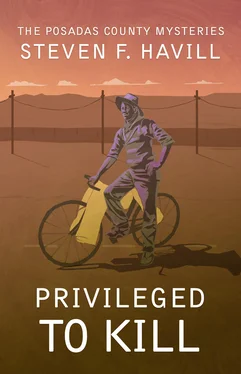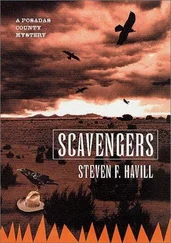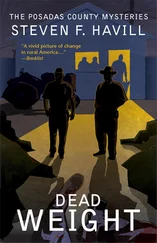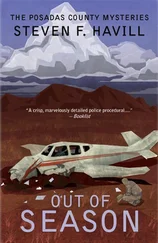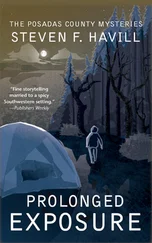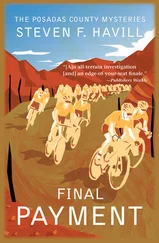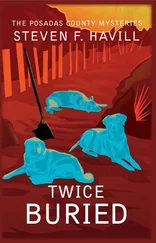Steven Havill - Privileged to Kill
Здесь есть возможность читать онлайн «Steven Havill - Privileged to Kill» весь текст электронной книги совершенно бесплатно (целиком полную версию без сокращений). В некоторых случаях можно слушать аудио, скачать через торрент в формате fb2 и присутствует краткое содержание. Год выпуска: 2011, ISBN: 2011, Издательство: Poisoned Pen Press, Жанр: Полицейский детектив, на английском языке. Описание произведения, (предисловие) а так же отзывы посетителей доступны на портале библиотеки ЛибКат.
- Название:Privileged to Kill
- Автор:
- Издательство:Poisoned Pen Press
- Жанр:
- Год:2011
- ISBN:978-1-61595-232-8
- Рейтинг книги:5 / 5. Голосов: 1
-
Избранное:Добавить в избранное
- Отзывы:
-
Ваша оценка:
- 100
- 1
- 2
- 3
- 4
- 5
Privileged to Kill: краткое содержание, описание и аннотация
Предлагаем к чтению аннотацию, описание, краткое содержание или предисловие (зависит от того, что написал сам автор книги «Privileged to Kill»). Если вы не нашли необходимую информацию о книге — напишите в комментариях, мы постараемся отыскать её.
Privileged to Kill — читать онлайн бесплатно полную книгу (весь текст) целиком
Ниже представлен текст книги, разбитый по страницам. Система сохранения места последней прочитанной страницы, позволяет с удобством читать онлайн бесплатно книгу «Privileged to Kill», без необходимости каждый раз заново искать на чём Вы остановились. Поставьте закладку, и сможете в любой момент перейти на страницу, на которой закончили чтение.
Интервал:
Закладка:
As I tossed my hat on the bench beside it, I reflected that the rug was about twice as big as Maria Ibarra’s sleeping pad.
12
I had lied to Estelle Reyes-Guzman and she probably knew it. I didn’t have “a couple of things to take care of,” as I had said in the hospital parking lot. If I had anything at all to do, I sure as hell didn’t have a clue what it was. What was worse, I didn’t have the gumption to find out.
There was probably a “to-do” list that was a hundred items long in someone’s head, but not in mine.
Normally a short nap worked wonders…that was standard operating procedure for keeping my insomnia under control, and I had become adept over the decades at snatching a quick nap whenever the spirit moved me. But even the dark, cool invitation of the bedroom seemed pointless.
I walked down the hallway and into the kitchen. On automatic pilot, my hand was about a foot away from the cupboard where I kept the coffee filters when I stopped.
“Jesus Christ,” I said aloud, finally giving voice to my frustration. I stood at the sink with my hands resting on the cool porcelain edge, letting things ebb and flow. Even the idea of coffee, the lifeblood of my existence, was nauseating.
The kitchen window faced north and I gazed out through the six-inch square of dirty glass that hadn’t yet been covered by the energetic Virginia creeper vine outside.
If I removed the vine and then a couple hundred cottonwood trees, junipers, elms, poplars, and hollyhocks, I would be able to look across the depth of my five acres and see a vehicle if it drove by on Escondido Lane. Another two hundred yards beyond that were the trailer park, Manny Orosco’s truck, and finally the interstate.
The telephone rang and I ignored it. Instead, I walked across the kitchen to the pantry and unlocked the back door. Years before, I had had visions of a wonderful brick veranda outside that door. If I had designed it just right, I could have bricked right around the massive trunk of the nearest cottonwood, including it in the terrace. My youngest daughter had named the huge, sprawling tree “Carlos Cottonwood” for reasons known only to her. Underneath that tree, and on the north side of the house, the area was cool any time of year.
Visions were about as far as I had ever gotten. I stood by the door and looked at the jungle. The Virginia creeper’s trunk began on the east side of the house, and the vine had covered thirty feet of adobe wall before taking on the kitchen window on the north side. Encouraged by the cool shade, the vine had created a thick, green mat that was just beginning to brown off with the crisp fall nights.
I turned and looked at the cottonwood. It was an unkempt tree by nature, but the benign neglect contributed by my bachelor residency on the property had resulted in a creation that looked like something out of a British fantasy book.
The tree soared upward, its limbs spreading across the compass, crotches choked with nests whose tenants had come and gone, among them squirrels, ravens, perhaps even children. Who the hell knew. Dead limbs littered the ground and hung perilously from the living canopy, ready to rain down with the slightest breeze.
“Carlos Cottonwood,” I said and thrust my hands in my pockets. Beyond a passing glance out the window to check the weather, I hadn’t looked at the tree for a decade. Its massive root system was probably a hairsbreadth from plugging my sewer system for keeps.
I turned and looked at the kitchen window again. If the glass ever broke, the vine would find a way inside. They’d discover me one day, choked to death in bed by Virginia creeper.
As if the day held no other urgency, I wandered around the house to the garage, pushed up the door, and slid past all the junk that threatened to landslide down and crush both me and the late-model Chevy Blazer parked there. Deep in the bowels of the garage, in the bottom of a plastic bucket that was home to three sprinkler heads and a half bag of plant food, I found a set of nippers, yellow plastic handles and all.
I had never seen their jaws sprung open. I had no recollection of ever buying them, but knew of their existence in the same vague way that I knew there was a box of wide-mouth canning lids on top of the paint cabinet and a small package of gas lantern mantles in one of the tool boxes.
I went back outside, opening and closing the nippers as if trying to train them before the big event.
Before beginning on the vine, I cleared away the worst of the cottonwood detritus against the back of the house. It all made a neat pile about the size of a bathtub. It would have taken about a thousand of those piles to make a dent around the property.
With access to the back wall, I gently worked on the creeper. I didn’t want to make it angry, of course, but I was determined to have a window and maybe even an outside veranda light. There was no bulb in the fixture, but that was a problem easily solved. I left an artistic sweep of vine over the light and let the tendrils drape over the window frame, cascading down on the other side to touch the ground.
With the vine disciplined and the spiderwebs swept away, I had an old-fashioned four-pane window whose glass was intact under the thick crust of time. A sponge and plastic pan were just a few steps away in the pantry and I was eager to see glass.
The grime came away in great streaks, but I worked methodically, changing the water when it threatened to coagulate. By the time I had polished the glass to crystal with several editions of the Posadas Register , I could see that the wooden sill and window frame had peeled until there was only a trace of the original blue paint remaining.
With my pocketknife, I poked the wood. It was sound enough. It was still early in the day and plenty warm. Another opportunity might not present itself, and I shrugged. I still had blue paint from the last time the house trim had been painted.
I walked through the kitchen, pausing long enough to pour a pot of water into the coffeemaker and spoon grounds into the filter basket. By the time I had found, opened, and stirred the paint-a color labeled “Alhambra” by some imaginative engineer-and found a serviceable brush buried under my timing light and dwell meter, the coffee was finished.
With a steaming cup of coffee in one hand and the brush in the other, I daubed at the window casing and sill, stopping periodically to critique my progress. The critique was not always good. When my brush touched the glass for the third time, I set down the coffee cup and dug my glasses out of my pocket, then spent some more irritation trying to decide which panel of the bifocals would work best.
By the time I finished a quarter of the window, I had decided that a person could spend a lifetime painting a house. My old adobe, plastered as it was with genuine, hundred-year-old brown mud, saved me that trouble, but it still had an acre of window and door trim. The trick was not to look too closely at the other windows as I walked around the building.
With the window half done, I made another pot of coffee and brought out one of my folding chairs. I sat under the cottonwood and looked at the house, deciding that I liked what I saw.
The second half of the window was tedious. The light was bad, my neck cricked, and the paint was thick and uncooperative on the brush. But I persisted and avoided painting the glass blue.
With six inches of the center mullion to go, I heard footsteps in the house. My hand froze, the brush poised just above the wood, a bead of paint ready to run.
“Sir?”
“I’m out back,” I shouted when I recognized Estelle Reyes-Guzman’s voice.
She appeared in the doorway but didn’t open it. Instead she stood quietly, regarding me. Her eyebrows pulled together in the beginnings of a frown.
Читать дальшеИнтервал:
Закладка:
Похожие книги на «Privileged to Kill»
Представляем Вашему вниманию похожие книги на «Privileged to Kill» списком для выбора. Мы отобрали схожую по названию и смыслу литературу в надежде предоставить читателям больше вариантов отыскать новые, интересные, ещё непрочитанные произведения.
Обсуждение, отзывы о книге «Privileged to Kill» и просто собственные мнения читателей. Оставьте ваши комментарии, напишите, что Вы думаете о произведении, его смысле или главных героях. Укажите что конкретно понравилось, а что нет, и почему Вы так считаете.
